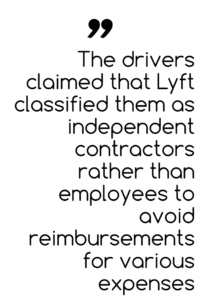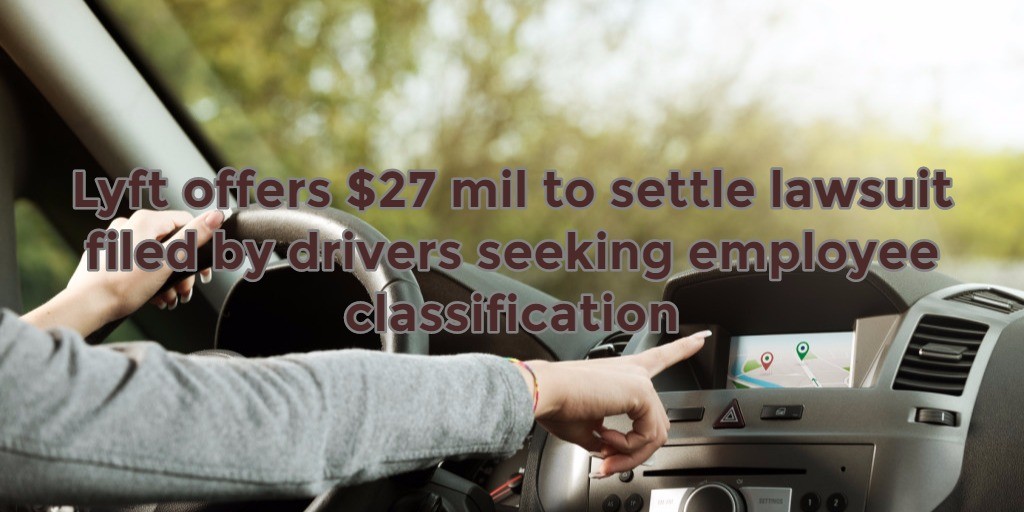This past Wednesday, Lyft Inc. made an offer to pay $27 million in order to settle a lawsuit filed by drivers in California. This is more than double what the company originally offered to settle the lawsuit. In this class-action lawsuit, the drivers asked to be considered employees. According to the drivers, Lyft classified  the drivers as independent contractors while the drivers felt they should be considered employees.
the drivers as independent contractors while the drivers felt they should be considered employees.
The drivers claimed that Lyft classified them as independent contractors rather than employees to avoid reimbursements for various expenses. Lynx is a ride-hailing service and would have to provide employees reimbursement for expenses relating to vehicle maintenance and gasoline. Independent contractors, on the other hand, do not need to paid these reimbursements.
This lawsuit was originally filed by the California drivers in early 2013. In January, the company offered to pay $12.25 million to settle the lawsuit.
The original settlement agreement was rejected by U.S. District Judge Vince Chhabria in April. According to the judge, the settlement agreement was not reasonable and would not properly compensate the drivers.
In a prepared statement, plaintiff attorney Shannon Liss-Riordan argued that the new settlement agreement would provide adequate compensation to Lyft drivers who have invested a substantial amount of time into the company. According to Liss-Riordan, drivers who have worked for Lyft for more than half a year could receive about $6,000.
It is estimated that the settlement agreement would affect 100,000 California Lyft drivers.
In order to fulfill the proposed settlement, Lyft would need to update its terms of service so that policies regarding driver termination are more transparent. As of now, the new settlement agreement must be approved by Chhabria before it goes into effect.
Uber, which is a much larger competitor of Lyft that is also based in San Francisco, settled a similar lawsuit about a month ago. The payment could be as much as $100 million for the Uber workers. In this settlement, drivers who have worked with Uber for more than half a year could receive about $8,000. Just like with the Lyft suit, the Uber settlement does not offer a resolution in terms of whether the drivers should be considered employees rather than independent contractors.


